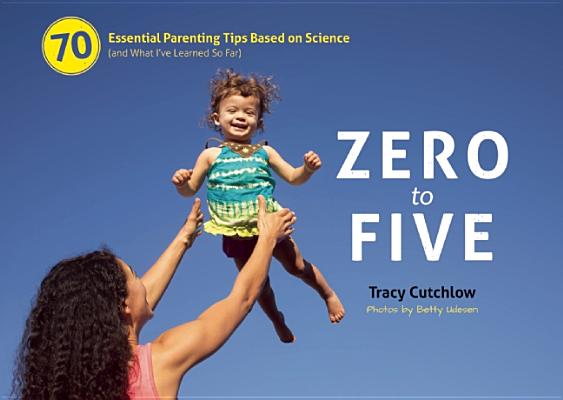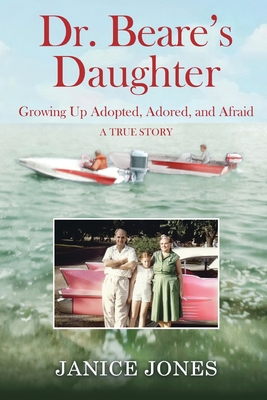
Cutchlow, Tracy
product information
description
k for new parents (Parents magazine)
Pregnancy? Newborn baby? Partway through parenthood with a toddler or preschooler? No matter your stage, you could use more calm, more confidence. You could read dozens of parenting books on pregnancy, baby sleep, picky eaters, child psychology, child development, potty training, and discipline. Or you could read Zero to Five: 70 Essential Parenting Tips Based on Science. Journalist Tracy Cutchlow cuts to the chase, summarizing the best parenting research in bite-sized chunks. She knows from her own experience with motherhood: new parents are too busy and sleep-deprived. One tip per page + beautiful photographs = cool + easy.
Research
With the premise that science isn't perfect, but it's the best guide we've got, Zero to Five draws on scientific research and studies from experts such as Dimitri Christakis (screen time), Diana Baumrind (parenting styles), Adele Diamond (neuroscience and executive function), Carol Dweck (growth mindset), Alison Gopnik (child psychology), John Gottman (marriage and conflict resolution), Megan McClelland (executive function), Patricia Kuhl (language acquisition and brain development), Ellyn Satter (feeding children), Dan Siegel (emotions), Paul Torrance (creative thinking), Grover Whitehurst (literacy and reading comprehension), and more. Then Cutchlow makes it all readable, for that 2-minute break you've got during the day.
This parenting book is for you
...if you like to research all the options so you can find the best
...if you are feeling scared, anxious, or unsure of yourself as a parent (who isn't?)
...if you like the idea of using science as a filter for the crazy amount of parenting advice out there
...if you want practical, how-to ideas for applying the research -- not just what to do, but ideas for how to do it or how to say it
...if you want to do things differently than your parents did, even though you love them
...if you want word-for-word examples for dealing with specific discipline scenarios (hitting, biting, not sharing, talking back, refusing requests, not listening, and more)
...if you are wondering how to handle television and screen time
...if you are interested in positive discipline or positive parenting
...if you are a dad (or you are with a partner) who probably wouldn't read parenting books
...if you are a grandparent wanting to be up with the latest knowledge about raising kids
...if you are studying for your CDA, or working in early childhood education, and want a reference
...if you work with families and want to recommend or provide evidence-based resources to them
...if you want to feel like you're enjoying parenting, not just surviving it
Who is using Zero to Five
besides, of course, parents, we've heard from: Pediatricians. Many keep their copy in the exam room. Some private-practice pediatricians give a copy of Zero to Five to all new parents. Parent educators. The best I've seen in a long time. My go-to source. Parenting support groups. Seattle's largest network, PEPS.org, uses Zero to Five as part of the weekly curriculum, in a brain development break. Child-care providers. Agencies that train child-care providers. One agency created a training based on Zero to Five. Home visitors. Family therapists and psychologists. Your book is a big part of my practice. I recommend it all the time. Childbirth-class teachers. Early-learning advocates. Graduate students in child development. Zero to Five is your quick and easy guide to the best practices in parenting.
Pregnancy? Newborn baby? Partway through parenthood with a toddler or preschooler? No matter your stage, you could use more calm, more confidence. You could read dozens of parenting books on pregnancy, baby sleep, picky eaters, child psychology, child development, potty training, and discipline. Or you could read Zero to Five: 70 Essential Parenting Tips Based on Science. Journalist Tracy Cutchlow cuts to the chase, summarizing the best parenting research in bite-sized chunks. She knows from her own experience with motherhood: new parents are too busy and sleep-deprived. One tip per page + beautiful photographs = cool + easy.
Research
With the premise that science isn't perfect, but it's the best guide we've got, Zero to Five draws on scientific research and studies from experts such as Dimitri Christakis (screen time), Diana Baumrind (parenting styles), Adele Diamond (neuroscience and executive function), Carol Dweck (growth mindset), Alison Gopnik (child psychology), John Gottman (marriage and conflict resolution), Megan McClelland (executive function), Patricia Kuhl (language acquisition and brain development), Ellyn Satter (feeding children), Dan Siegel (emotions), Paul Torrance (creative thinking), Grover Whitehurst (literacy and reading comprehension), and more. Then Cutchlow makes it all readable, for that 2-minute break you've got during the day.
This parenting book is for you
...if you like to research all the options so you can find the best
...if you are feeling scared, anxious, or unsure of yourself as a parent (who isn't?)
...if you like the idea of using science as a filter for the crazy amount of parenting advice out there
...if you want practical, how-to ideas for applying the research -- not just what to do, but ideas for how to do it or how to say it
...if you want to do things differently than your parents did, even though you love them
...if you want word-for-word examples for dealing with specific discipline scenarios (hitting, biting, not sharing, talking back, refusing requests, not listening, and more)
...if you are wondering how to handle television and screen time
...if you are interested in positive discipline or positive parenting
...if you are a dad (or you are with a partner) who probably wouldn't read parenting books
...if you are a grandparent wanting to be up with the latest knowledge about raising kids
...if you are studying for your CDA, or working in early childhood education, and want a reference
...if you work with families and want to recommend or provide evidence-based resources to them
...if you want to feel like you're enjoying parenting, not just surviving it
Who is using Zero to Five
besides, of course, parents, we've heard from: Pediatricians. Many keep their copy in the exam room. Some private-practice pediatricians give a copy of Zero to Five to all new parents. Parent educators. The best I've seen in a long time. My go-to source. Parenting support groups. Seattle's largest network, PEPS.org, uses Zero to Five as part of the weekly curriculum, in a brain development break. Child-care providers. Agencies that train child-care providers. One agency created a training based on Zero to Five. Home visitors. Family therapists and psychologists. Your book is a big part of my practice. I recommend it all the time. Childbirth-class teachers. Early-learning advocates. Graduate students in child development. Zero to Five is your quick and easy guide to the best practices in parenting.
member goods
No member items were found under this heading.
Return Policy
All sales are final
Shipping
No special shipping considerations available.
Shipping fees determined at checkout.







